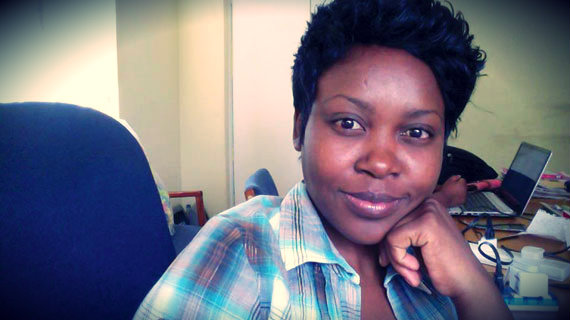
WHENEVER I reveal that I am Zimbabwean in most of the African countries that I have been to, I am often surprised at the envy that is directed at me for having Robert Mugabe for President.
Whatever else we may think of him here at home, Mugabe is revered in some parts of Africa.
My earliest encounter with this level of adulation directed at the President was in Ghana at a leadership training workshop for emerging young women leaders where I became the instant envy of the other young women in the group.
How did Mugabe do it? They wanted to know. And why couldn’t their own leaders show the same gumption and tell the West to go suck a lemon, they mused in frustration.
Upon arrival in Namibia a year ago, the man who fetched me from the airport waxed lyrical about Mugabe as soon as I divulged that I was from Zimbabwe.
“You need to loan us your Mugabe here for just six months and he will sort out all these whites because they are a problem. Our leaders are not like your brave Mugabe,” he exhorted.
They’ve been many other instances where I receive praise on behalf of Mugabe from people who believe that I am so fortunate to have been born under his rule.
His vilification of the West has certainly catapulted him to the status of legend.
- Chamisa under fire over US$120K donation
- Mavhunga puts DeMbare into Chibuku quarterfinals
- Pension funds bet on Cabora Bassa oilfields
- Councils defy govt fire tender directive
Keep Reading
The Dali Tambo interview certainly enhanced this perception of a fearless, resolute and unapologetic leader. I remember my friends in South Africa, Malawi, The Gambia, Cameroon and Nigeria, among other countries, flooding my social networking sites to congratulate me on having such a splendid leader.
They made no attempts to hide the envy that choked their awe-filled messages.
My most recent experience of this veneration of Mugabe occurred on Monday this week at a workshop in Botswana where a Zambian participant interrupted me in the middle of introducing myself (he just couldn’t wait for me to finish) to gush out how fantastic Mugabe is and how he is a true African leader whom every other African head of State should emulate.
Sigh.
When it comes to Mugabe, bitter ambivalence is the best that I can muster.
I am fascinated by the unadulterated adoration that mention of my country elicits from some Africans — you would think having Mugabe for President was the equivalent of being born with a silver spoon in my mouth.
How do I explain to such people that all I know is that Mugabe presided over the economic ruin of the country in ways that impacted negatively on my life and nearly smothered my prospects of completing my college degree?
How do I explain the hopes and dreams that were dashed, the increasing decline in the quality of life I was forced to live, the lowering of my expectations for better service delivery, healthcare or education and the growing resentment I felt at having to see my efforts eroded away by an economic culture which rewarded the informal black market sector where corruption, inflation of prices and self-aggrandisement were the order of the day?
How do I tell these people who gaze at my Zimbabweanness through rosetinted lenses, of nights in which neighbours tossed stones on the roof to help me wake up and collect water from the taps because it had returned just for a few minutes, of other nights when they were merely waking me up so that we could trek to another neighbourhood to fetch water from the borehole nicodemously so that the rightful borehole owners would not chase us away?
How do I explain standing in queues at borders hoping to go and buy basics from neighbouring countries, queueing at banks trying to withdraw a set daily amount of money whose worth was devaluing while I queued, queueing in terror at understaffed clinics waiting for my feverish child to be attended to, queueing at supermarkets where I joined stampedes for a packet of salt, and getting whipped one day by an overzealous city council security officer who was manning the queues at a taxi rank after I was pushed out of the line and he thought I was trying to jump the queue?
How do I share my lived experience of residing in Mugabe’s Zimbabwe with people who see only a hero who told the West to fob off?
And even if I could narrate all these things, they would still ask me how any of that is Mugabe’s fault!
How is it not? I cannot speak for other people, but I have suffered under Mugabe’s rule — not as terribly as others, perhaps I have even fared better — but I have little praise for him and in those areas that I feel he has done right by this country, I remain ambivalent towards him.
There’s a part of me that feels like Mugabe wanted to make a point. If the adulation of the Africans I have met is anything to go by, he succinctly made his point, but he made it at my expense.
I feel if Africans admire him so much for his militancy in taking a stance, it is only because they did not live in Zimbabwe during its darkest years and they did not foot the bill for it — I did.
But that’s just me. I could be wrong. We can always agree to disagree.
Delta Milayo Ndou is a journalist, writer, activist and blogger










